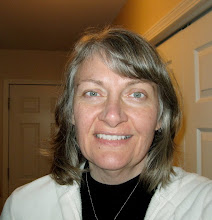One weakness (and strength) of systematic theology is its ability to simplify. Difficult truths are made accessible through explanations that capture the big picture, yet there's also a risk of over-simplification. Mysteries can be reduced to propositions, losing in the process their ability to slice through us and awe us and lift us and flatten us.
Thomas Moore talks about this in his book The Soul's Religion. He sees religion as mystery and the faithful as fools--those who are empty enough and open enough to allow a hole through which mystery may enter or be glimpsed. Too much "wisdom" of the "explain everything to the nth degree" sort can at times close the aperture which allows us a supernatural view.
Mystery is both repellent and attractive to me. I see it sometimes resorted to too quickly. Instead of investigating and thinking and struggling through to the deepest understanding possible, we drop questions into a Mystery Box and leave them there. That goes against my grain (which might just mean that my grain is going the wrong direction!) because puzzles are meant to be figured out, right? Tangles, whether of yarn or ideas, are meant to be untangled and restored to some sort of order that doesn't leave one in a jumble of frayed ends and twisted thoughts. That's how it seems to me, anyhow. I don't believe in setting things aside, out of play, out of mind. There definitely are times to humbly accept an incomplete understanding, to not chafe or insist upon answers that aren't forthcoming. The most annoying person in the world is a child who keeps asking and asking and asking, long after it's time to just quit and accept the way things are. Sometimes you have to be okay with not knowing how it all works.
But the questions should stay on the table in play, not be tucked in the background where they cause no ripples. The mysteries shouldn't be forgotten or set aside but should be right in the middle where everyday life can bump up against them. Mysteries should cause detours and bruises; that's what keeps us from thinking this world we've created in our human imaginations is the real thing, the only thing. The things that don't fit sometimes get set aside, shuffled off into a separate Mystery Box as if they are pieces from a different puzzle, not recalcitrant ones from a single gigantic, eight million piece, 3-D, no-picture-on-the-box puzzle.
Theology, in the hands of humans, can become both a stubborn insistence on finding answers that God doesn't offer and a cop-out to put an end to the struggle. Theology (and discussions of it) can become a retreat from complexity. Explaining God to death can be a retreat from complexity. Filling up the Mystery Box and setting it on a shelf till heaven instead of letting the mysteries roam freely in one's life can be a retreat from complexity. But what can we do? Sure and certain doctrines that MUST be held tightly must also be held loosely, not in the sense of doubt or uncertainty, but in the sense of allowing those sure and certain doctrines to mingle and interact and bump into the not-so-sure and not-so-certain parts of God which remain for us mysteries. Too much insistence on explanation or too much avoidance of it might be a symptom of fear of complexity--an inability to accept the complex world the way it is or God the way he is.
Life is not simple. It is indescribably complex. And God is the ultimate complexity. Unfortunately for us, complexity looks an awful lot like chaos, which is anathema to us both as bearers of God's image and usurpers of his authority. Because we see through a glass darkly and at times would prefer to not see God at all, we glimpse only shadows and motion and blurry outlines when we look at God and his activity in this world. We want to tame it, bring order to confusion, control to chaos, to distill reality into simple statements, to sort life into piles (these are the things I know, these are the things I don't; these are the things I let touch me, these are the things I don't) to make it more manageable. That's not bad, necessarily. I don't know that we can help it. But oh what we miss when God is not allowed to be everything he is. Mystery, complexity, order, certainty, paradox--there's no getting away from any of them without also getting away from God.
The questions then: How to run from chaos without running from complexity?
How to pursue order without rejecting mystery?
Yup--life with God is complicated, all right.
Subscribe to:
Post Comments (Atom)

No comments:
Post a Comment